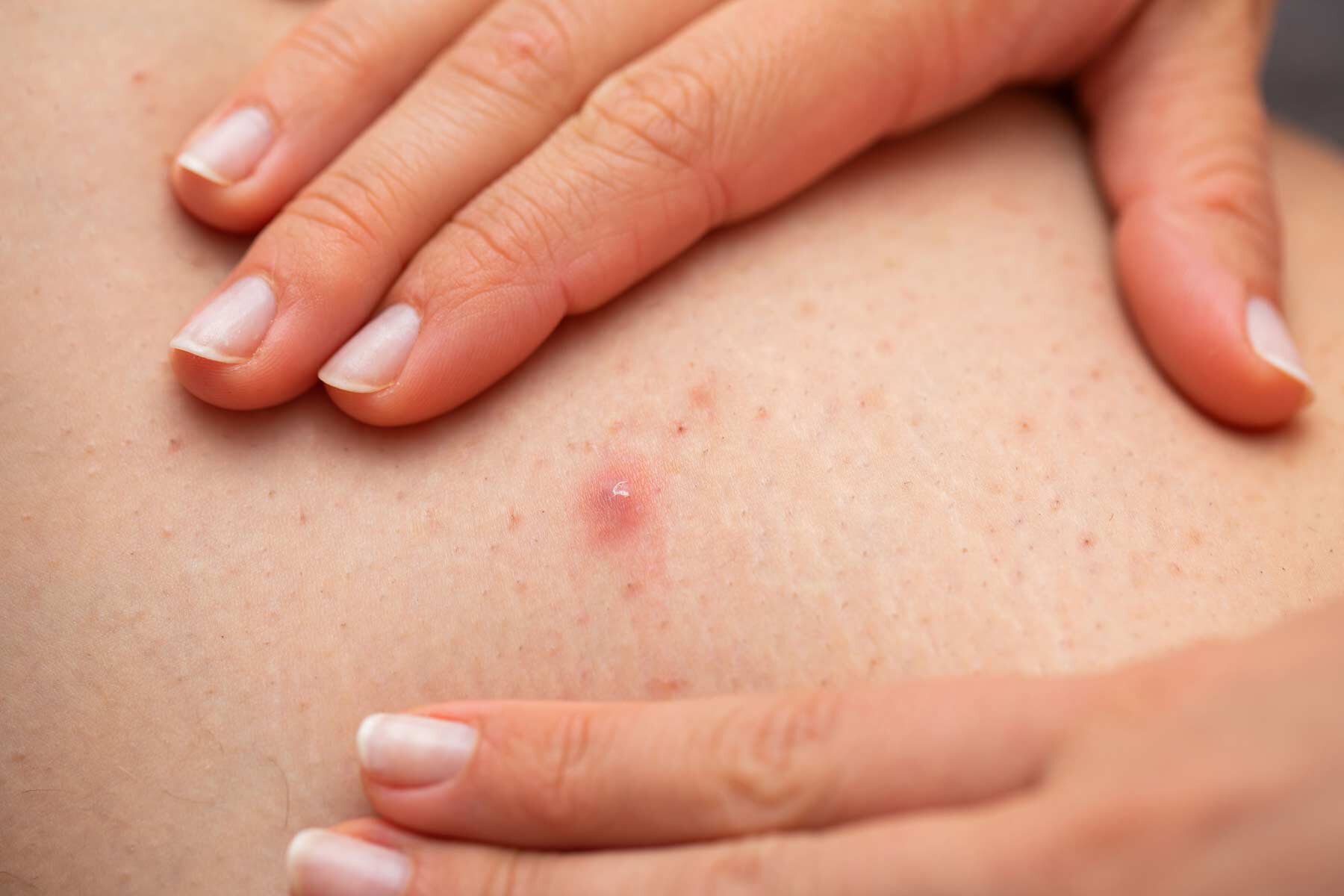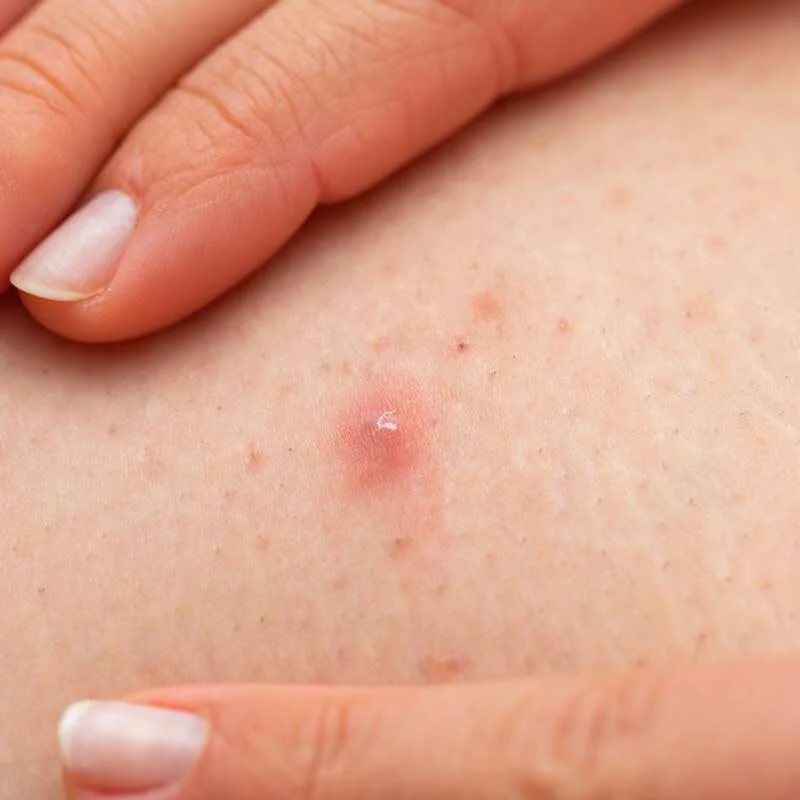
Folliculitis
Folliculitis is a common skin condition characterized by inflammation of hair follicles. It occurs when hair follicles become infected with bacteria or fungus, leading to the formation of small red bumps or pustules around the hair shaft. Folliculitis can affect any area of the body where hair grows, including the face, neck, arms, legs, and scalp.
There are several factors that can increase the risk of developing folliculitis, including:
Hot, humid weather: Sweat and moisture can create an environment that is conducive to the growth of bacteria and fungus.
Tight clothing: Clothing that rubs against the skin can irritate hair follicles and make them more susceptible to infection.
Shaving: Shaving can create tiny cuts in the skin that provide an entry point for bacteria and fungus to infect hair follicles.
Hot tubs and swimming pools: These bodies of water can contain bacteria and chemicals that can irritate the skin and cause folliculitis.
Poor hygiene: Not washing the skin regularly or not properly cleaning tools used to groom the skin, such as razors or loofahs, can increase the risk of developing folliculitis.
The symptoms of folliculitis vary depending on the cause of the infection, but common symptoms include:
Red bumps or pustules around hair follicles.
Itching or burning around affected areas.
Swelling and tenderness in affected areas.
Drainage of pus from affected areas.
Folliculitis can be diagnosed by a dermatologist based on a physical examination of the affected area. In some cases, a skin culture may be performed to identify the cause of the infection.
Treatment for folliculitis depends on the cause of the infection and the severity of the symptoms. In mild cases, topical antibiotics may be prescribed to treat the infection. In more severe cases, oral antibiotics may be necessary. In some cases, the affected area may need to be drained if a large abscess has formed.
To prevent folliculitis, it's important to practice good skin hygiene, such as washing the skin regularly and using clean grooming tools. Wearing loose-fitting clothing, avoiding hot tubs and swimming pools, and avoiding shaving or waxing the skin in areas where folliculitis is likely to occur can also help reduce the risk of developing the condition.

